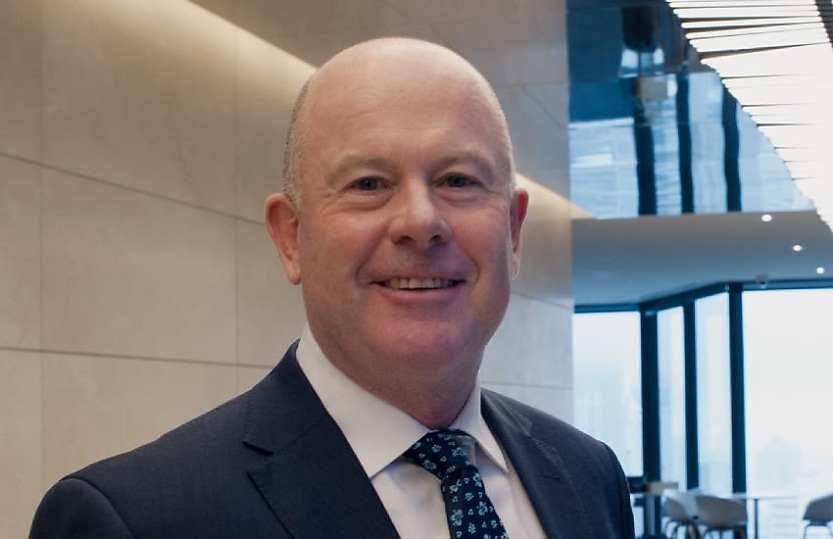CEOs confident about growth prospects: KPMG

A significant majority of Australian CEOs are confident about their organisation’s potential for growth despite one-third experiencing recent revenue declines, a survey reveals.
A global study undertaken by KPMG has found that around 86 per cent of Australian chief executives and 76 per cent of global chief executives are confident their organisation will grow over the next three years.
Australian leaders are generally predicting lower levels of growth, however, with only 12 per cent of CEOs forecasting strong growth of between 10 and 20 per cent over the next three years.
This is also the case among global leaders with only 5 per cent predicting growth at these levels.
Half of Australian leaders are predicting growth of less than 2.5 per cent, while another 16 per cent expect growth between 2.5 to 5 per cent. Around 16 per cent stated that they expect growth will be between 6 to 10 per cent.
On headcount, CEOs were generally upbeat with 54 per cent of Australian leaders and 58 per cent of international CEOs forecasting growth in staff levels of up to 5 per cent. Around one-third expect staff numbers will grow between 6 to 10 per cent.
Only 4 per cent at home and overseas predicted staff cuts, which was a significant shift from last year’s survey when many forecast reductions.
At a macro level, 88 per cent of Australian CEOs said they were confident about the national economy and the majority were also optimistic about their industry sector.
KPMG chief executive Andrew Yates said it was encouraging to see that business leaders in Australia are still generally upbeat, not only for their own companies but for the country despite discussions about an economic slowdown.
“It seems that most are looking beyond what may be a sluggish next few months to a brighter two or three years after that,” Yates said.
“For example, while the unemployment rate is tipped to rise over the next six months, our respondents are confident that staff levels in their companies will grow over the following two years or so.”
The survey revealed that Australian leaders were more focused on building strategic alliances with third parties while global leaders were focused on global mergers and acquisitions.
“Strategic alliances are increasingly seen as the way ahead to build growth,” Yates said.
“It is not possible for any business to have all the capabilities in-house and so building trusted partnerships with third-party organisations offering complementary skill sets makes sense.”
CEOs listed some of the key threats to growth as supply chain issues, cyber security and emerging or disruptive technology.
Other major issues which could adversely impact companies include inflation, geopolitical conflicts, regulatory demands, talent, reputational risk, climate change, and natural disasters.
CEOs stepping up to the demands of ESG
Australian leaders have also become notably more sensitive to the impact ESG issues can have on trust and the reputation of their organisations, with a large rise in the number (82 per cent up from 54 per cent last year) who said they would divest a profitable part of the business if it was damaging the company’s reputation.
There was a similar rise in Australian CEOs saying they would take a stand on a politically or socially contentious issue to demonstrate integrity, even if their board had concerns.
The rise of ESG in the corporate agenda has also heightened the risks for CEOs. Over a quarter of Australian CEOs (26 per cent) said failure to meet ESG expectations would represent a threat to their continued tenure.
A minority of Australian CEOs (43 per cent) and two-thirds of overseas CEOs said they aren’t prepared to withstand the potential scrutiny of failure to meet stakeholder expectations.
Operationally, 80 per cent of Australian CEOs and 65 per cent globally say they have fully embedded ESG into their business operations to increase value, according to the survey.
ESG strategy still has the biggest impact in building customer relationships and a positive brand – this was a long way ahead of driving financial performance or shaping capital allocation. As with generative AI, the general view is that ESG investments will take 3-5 years to pay dividends.
Most CEOs (Australian 80 per cent, global 76 per cent) felt confident they had the capability to meet new sustainability and climate reporting standards.
Yates said most CEOs feel their companies have stepped up to the demands of the new ESG era, although there are still clearly some concerns about withstanding scrutiny and ongoing societal expectations.
“The extent to which ESG has moved from a ‘nice to have’ to an ‘essential’ in recent years is shown by some leaders fearing the consequences of not meeting stakeholder expectations,” Yates said.
“KPMG still believes many companies will face challenges when it comes to detailed preparations for Australia’s new mandatory reporting regimes, which will shed more light on how deep ESG has become embedded in business operations.”
About the author








Comments (0)
Comments powered by CComment